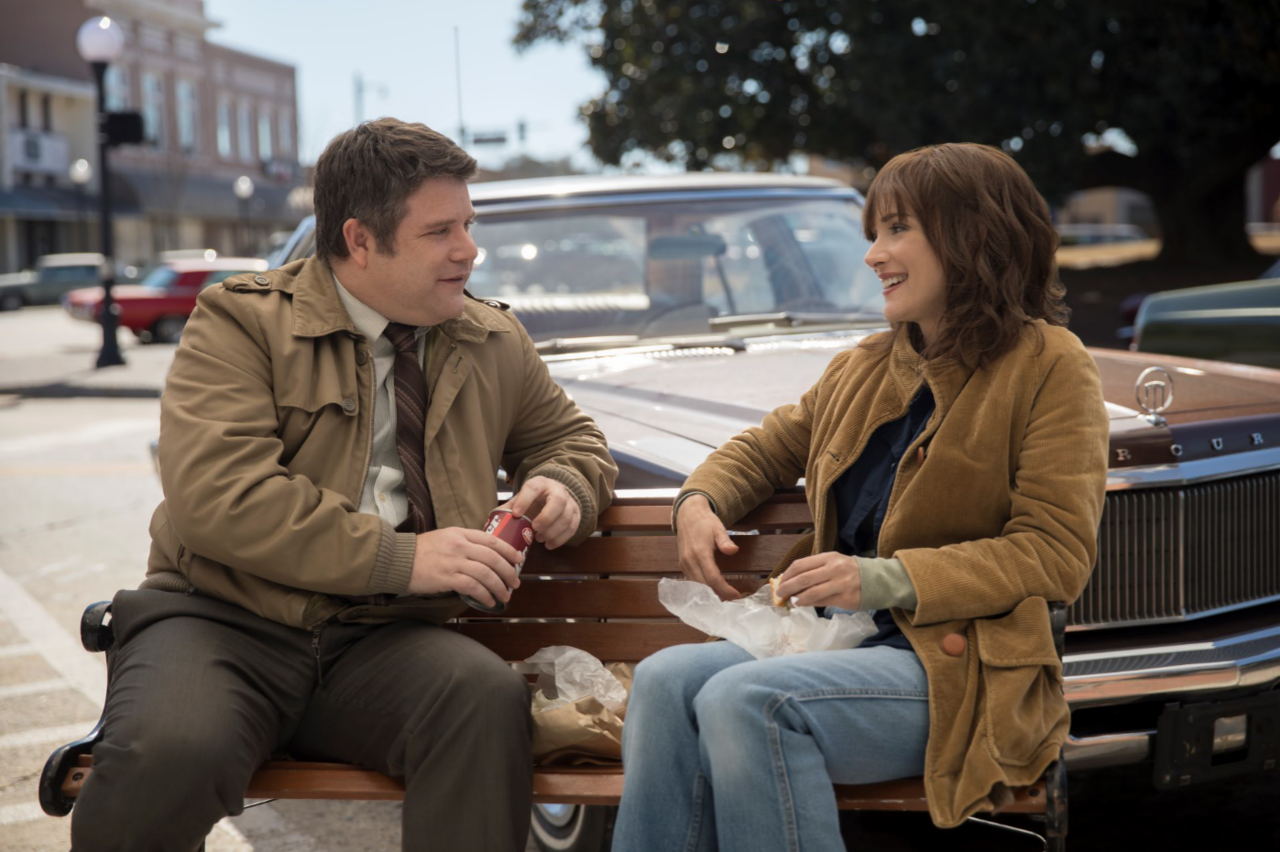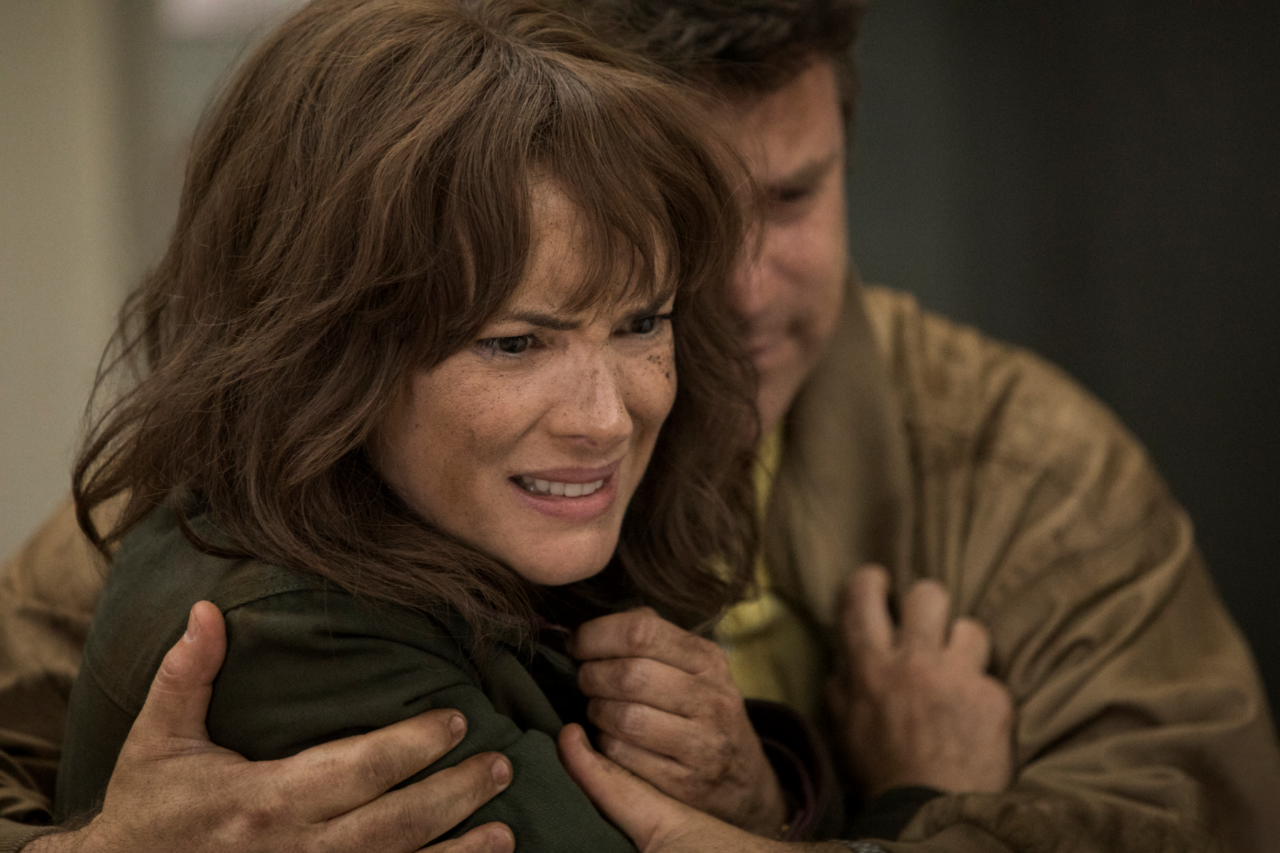Spoilers for Stranger Things 2 below
The original season of Stranger Things hit a near-perfect balance between whimsy and danger. Yes, it starred a bunch of kids, and at times its vibe verged on E.T. territory. But there were key moments that communicated to the audience: The stakes are higher here. Barb's disappearance was one of those moments.
It wasn't until we learned of Barb's death toward the season's end that fans on the internet became inflamed and started the viral #JusticeForBarb movement. But even before that, Barb's capture made it clear that no one in Hawkins, Indiana was safe. It wasn't just Will who was in danger, and the Demogorgon could take anyone next while it continued to hunt.
In Stranger Things 2, Bob's death served no such purpose. It was just a gut punch, an emotional body check, a proverbial slap in the face. It sucked.
I'm not saying Barb needed to die. I'm saying her disappearance and death served a purpose--multiple purposes, in fact. In Season 1, it raised the stakes, demonstrating the no one was safe. And throughout Season 2, Barb's death provided the catalyst for multiple connected storylines. It drove a wedge between Nancy and Steve, making room for her relationship with Jonathan (another plot sure to cause debate among fans). And it pushed Nancy, eventually with Jonathan's help, to work to expose the clandestine government operations that got Barb killed in the first place.
All of that is just plain good writing. We didn't like seeing Barb go, but her death sent ripples of repercussions spiraling outward through the rest of the story. Stranger Things' most incensed fans got their wish--justice for Barb--driven by Nancy's guilt over what happened to her friend and what her parents were going through. It was the natural way for the story to go following that traumatic event.
Can the same be said for Bob's death? What purpose did it serve within the story? There are a couple of arguments to be made here, on either side of the debate.

On one hand, Bob seemed set up to die. He was way too nice to exist for long in this world of government conspiracies, interdimensional portals, and predatory Dungeons & Dragons monsters. Bob got the short end in life, bullied throughout high school (by Hopper, it seems, as the chief can't stop referring to Bob by his residual nickname). Now he has a decent job that he enjoys, and he "gets to date Joyce Byers"--the cool girl when they were in school, who never gave him the time of day. Bob was the nerd--just like Barb. The similarity in their names even seems like a deliberate nod on the writers' parts to the inevitable #JusticeForBob movement.
What does it say about Stranger Things that the show has made a habit of killing its most socially marginalized characters? Is it a survival-of-the-fittest commentary? Is it a message about working together across petty social boundaries? Is it just a coincidence, because these two characters were simply the easiest to kill? And is that good writing?
There's another side, though: Did Bob's death serve any purpose within the larger story? At first I thought it didn't, but after watching again I realized I was wrong. Bob's death did serve a purpose: It helped push Joyce to the extreme emotional state necessary for her to take the drastic measures she needed to. Joyce, whose intense love of her son pushed her to similar extremes throughout Season 1, was faced with a potentially impassable obstacle in Season 2: Her son Will was, suddenly, the enemy himself.
Will's life hung in the balance throughout the second half of Season 2, and a Joyce who hadn't been shocked into a state of pure desperation would have found it much more difficult to do what she had to do. Will's interrogation and the subsequent exorcism had a real chance of killing the boy, but Bob's death spurred Joyce on whenever she started to question what she was doing--as demonstrated by her flashes of memories with Bob during the climactic scenes in the finale.

You could argue that Bob didn't need to die for Joyce to reach that state. Even before Bob's death, she'd started jamming syringes into her son, knocking him out with barely a second thought--spurred by his lapse in memory when asked if he remembered her. That could have been enough: If Will didn't even remember his own mother, he may have been too far gone already, a thought that clearly wasn't lost on Joyce.
And Bob certainly didn't need to die like that. Episode 8, "The Mind Flayer," was basically a horror movie, and in typical horror fashion Bob went out just at the moment he finally seemed safe. It felt a little cheap, if we're being honest. The prolonged shot of his glassy-eyed stare only added insult.
So was Bob's death a pointless shocker, or did it provide the catalyst for the climax? Either position is valid, but there's one larger point to make: Stranger Things needs to kill a main character next, or fans will learn not to get too attached to any new ones who might be introduced in future seasons. And then we'd basically be watching The Walking Dead, which I don't believe anyone wants.
